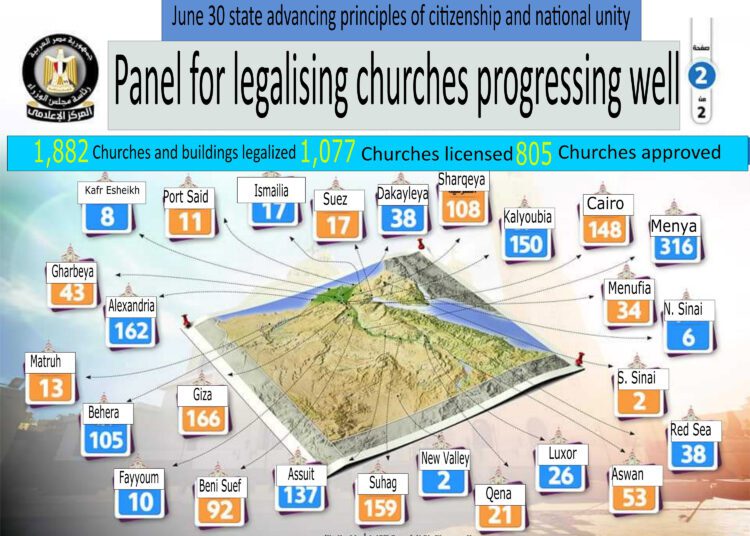Churches legalised are distributed in all governorates, catering to the needs of Christians in them
A government panel dealing with legalisation requests by the nation’s Christians for their churches has continued working as the nation’s Christians prepared for Easter.
The panel was formed in January 2017 as part of efforts by the administration of President Abdel Fattah El Sisi to advance citizenship rights and equality between the nation’s Muslims and Christians.
Egypt’s 10 million Christians make up almost one-tenth of the population.
The panel comprises a chairman, the Egyptian prime minister, six cabinet ministers and representatives of the various Christian sects.
The panel licensed 508 churches between May 2018 and April 2021, the Cabinet’s Information and Decision Support Center said in a statement Friday.
It added that the panel also legalised 814 churches and buildings in 2019.
The church legalisation and licensing decisions are in line with measures taken by Sisi’s administration since 2014 to grant the nation’s Christians more rights.
Apart from easing the entry of the nation’s Christians into representative bodies, Sisi’s administration also put stress on the construction of churches nationwide.
The president asked the government to construct a church in each new city. In January 2019, Sisi opened the country’s largest church in the new administrative capital in the desert outskirts of Cairo.
Sisi was also the first Egyptian president to be keen to be personally present among the Christians as they celebrate Christmas.
The churches legalised and licensed by the panel are located in almost all the nation’s governorates, the Cabinet’s Information and Decision Support Center said.
They included 316 churches and buildings in Minya, 166 in Giza, 162 in Alexandria, 159 in Sohag and 150 in Qalioubia.
It added that 148 churches were also legalised in Cairo, 137 in Assiout, 108 in Sharqiya and 105 in Beheira.
The church legalisation and licensing decisions are unprecedented, given the difficulties the nation’s Christians faced in obtaining licensing for the construction of a new church or the restoration of an old building.
Christians also used to complain that the number of churches in any given governorate were never enough or inadequate for the needs of local Christian communities.




